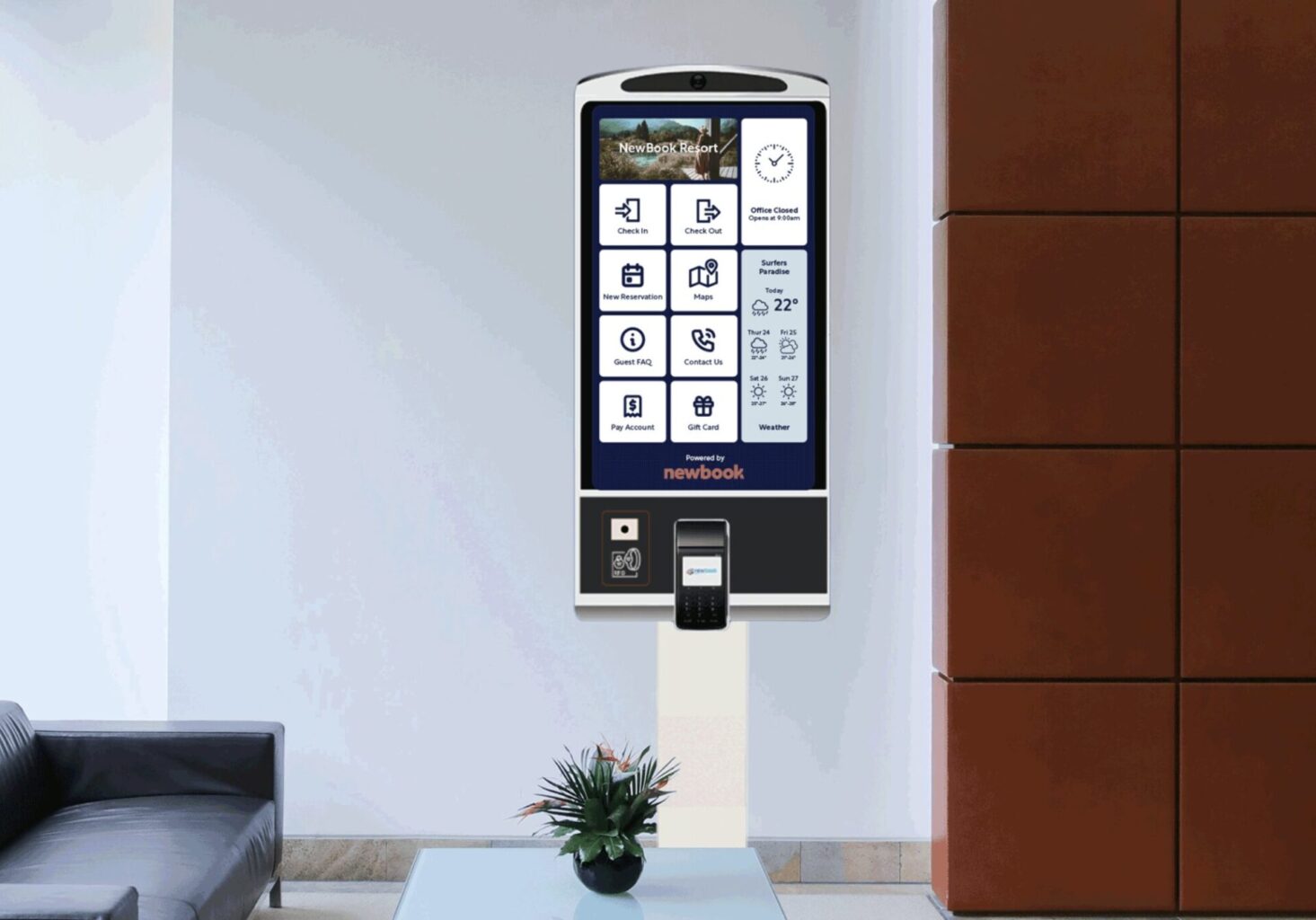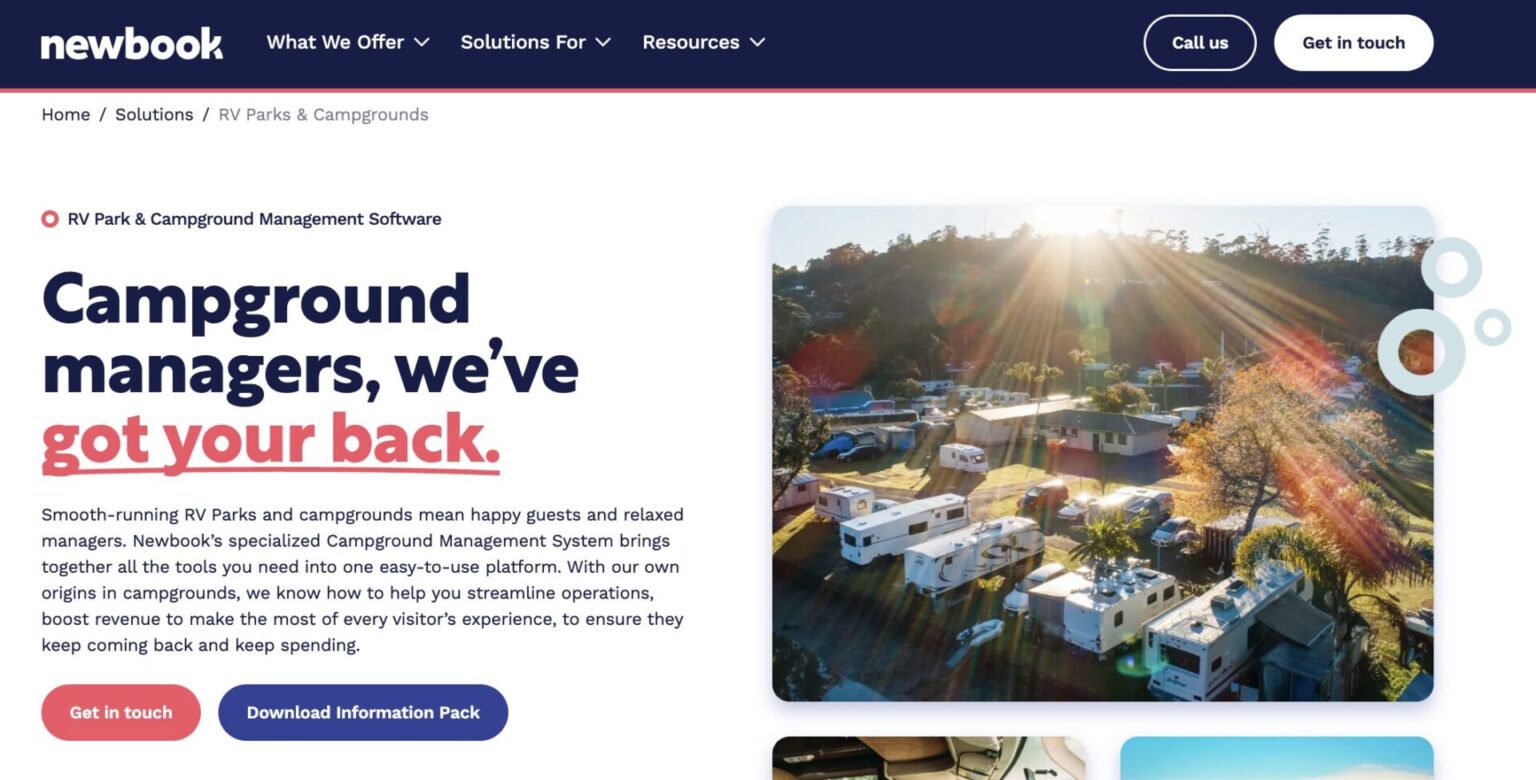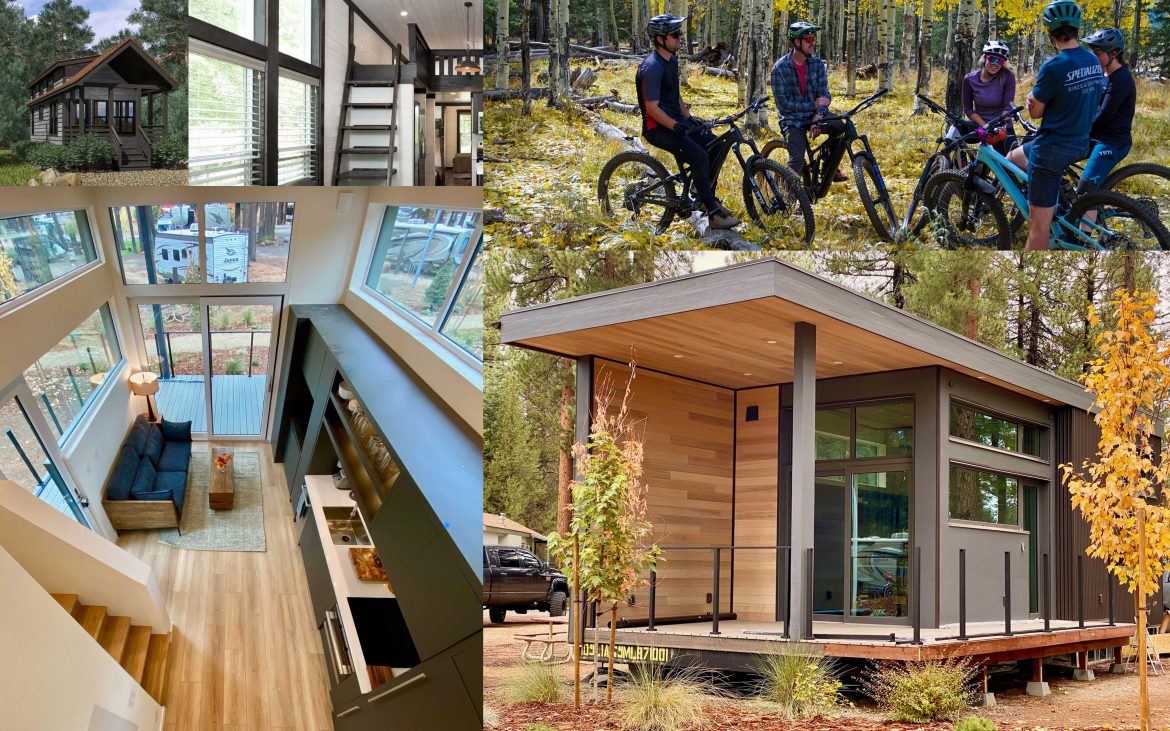The camping industry has experienced a significant boom, particularly during the pandemic, as North Americans sought ways to escape the monotony of staying indoors. Even before 2020, camping was steadily growing in popularity, driven by a desire to disconnect from technology, reconnect with nature, and embrace wellness activities like yoga, meditation, and Forest Therapy.
Camping also offers a cost-effective alternative to expensive vacations, providing unique experiences beyond the typical all-inclusive resort. However, the surge in demand has outpaced the supply of campgrounds, making it increasingly difficult for campers to secure spots. This growing demand has caught the attention of investors, making RV parks an appealing and potentially lucrative opportunity.
If you’re wondering how to start an RV park, then this article is for you. We’ll go through some key tips and essential considerations to set you on the path to success.
What Do You Need to Start an RV Park?

Starting an RV park involves detailed planning, strategic investment, and a commitment to creating a welcoming space for travelers. Here is a quick checklist that goes through what you’ll need to successfully establish your RV park:
1. Land Acquisition
- Size and Location: Select a piece of land with adequate space to accommodate RV sites, roads, and facilities. For a small RV park, 3-5 acres may suffice, while larger parks catering to seasonal or long-term travelers might require 10-20 acres or more.
- Prime Locations: Areas near highways, national parks, lakes, beaches, or tourist destinations are ideal. Proximity to attractions increases the appeal of your park.
- Accessibility: Ensure easy entry and exit for large RVs, with wide roads leading to your site.
- Zoning and Permits: Verify that the land is zoned for commercial or recreational use. Obtain necessary permits for construction, utility installation, and business operations. Requirements may vary by state and county, so check with local planning offices. For example, if you’re wondering how to start an RV park in Texas, you’ll want to first take a look at the compliance resources the state provides to would-be park owners.
2. Infrastructure Development
- Utilities:
- Electricity: Install power pedestals at each RV site, offering 30-amp and 50-amp options. Ensure adequate power supply for high-demand periods.
- Water Supply: Connect to municipal water systems or install a well for potable water. Ensure water pressure meets RV standards.
- Sewer Connections: Provide sewer hookups for each site or a central dump station. A septic system may be necessary in rural areas.
- Roads and RV Pads:
- Construct durable gravel or asphalt roads that can withstand heavy vehicle traffic. Ensure roads are wide enough for two-way traffic.
- Create level parking pads for RVs, with a mix of back-in and pull-through sites. Pull-through sites are especially appealing for large RVs and reduce the risk of accidents.
- Waste Management:
- Install a dump station for RVs without sewer hookups. Ensure proper disposal of black and grey water to comply with health and environmental regulations.
- Wi-Fi:
- This is more of an owner and guest preference since some owners might want to advertise that they are a “tech-free” park, while some guests might intentionally seek out places that provide reliable high-speed internet. You’ll have to research your target audience and make a decision accordingly. Some travelers that prioritize connectivity include remote workers and families, as well as those camping for long periods of time (weeks or months). Of course, you’ll at least need internet access for business reasons (whether it’s available to guests or not), such as accepting payments, check-ins, and more.
3. Business Setup
- Business Plan:
- Outline your vision, target audience, pricing structure, marketing strategy, and projected revenue and expenses. Include details on how you’ll differentiate your park from competitors.
- Legal and Insurance Requirements:
- Register your business with local and state authorities. Obtain licenses for operating an RV park.
- Secure liability insurance to protect against accidents, as well as property insurance for the park itself.
- Marketing Strategy:
- Build a website with an online reservation system. List your park on platforms like Good Sam, Campendium, and RVShare.
- Leverage social media to showcase amenities and engage with potential guests. Use Google My Business for local search visibility.
4. Facilities and Amenities
- Restrooms and Showers:
- Build clean, modern facilities that include toilets, sinks, and showers. ADA-compliant restrooms are a must to accommodate all guests.
- Laundry Facilities:
- Install coin-operated or app-based washers and dryers. Laundry rooms are essential for long-term guests.
- Recreation Areas:
- Offer picnic tables, fire pits, and grills at each site. Communal spaces like playgrounds, dog parks, or swimming pools enhance guest experiences.
- Hiking trails, fishing docks, or recreational courts (e.g., basketball or pickleball) add value to the park.
- Office or Check-In Area:
- Create a central location for guest registration and information. You can reduce the need for constant staffing and make it easier for guests to check in and out via Newbook’s self-serve kiosk or by providing a guest portal where guests can log in and confirm their arrival or departure, as well as pay for their stay. You should also have a small shop selling essentials like snacks, propane, and RV supplies.

5. Utilities and Power Backup
- Electricity Needs:
- Ensure your infrastructure can handle full occupancy during peak seasons. Work with local utility providers to assess power needs.
- Backup Systems:
- Install generators for emergency power supply to maintain operations during outages. Backup water storage is also recommended for emergencies.
6. Initial Capital and Funding
- Budget:
- The cost to start an RV park can vary widely depending on a number of factors, including fixed (land and permits) as well as variable (construction, amenities) per site for basic infrastructure. There is also staff expenses, maintenance and repairs, insurance, land acquisition, construction, utility installation, and marketing. Larger, amenity-rich parks may require several hundred thousand dollars.
- Funding Sources:
- Explore SBA loans, private investors, or grants for rural development. Crowdfunding may also be viable for community-driven projects.
7. Competitive Differentiation
- Offer unique amenities or features that set your RV park apart. Examples include:
- Luxury Amenities: Hot tubs, private patios, or concierge services.
- Specialized Themes: Eco-friendly parks, pet-friendly spaces, or adventure-focused parks with equipment rentals.
- Event Hosting: Build spaces for events like concerts, festivals, or RV rallies.
So you manage a campground? We make it easy
Newbook is your all in one campground management software. Talk to us today to learn how you can improve operations and increase bookings for your campground.


RV Park Income and Expenses: Are RV Parks Profitable?
RV parks are generally profitable but require significant upfront investment in infrastructure and permits. With proper capital and an understanding of profitability factors, success is achievable. Let’s explore what makes an RV park profitable.
Factors That Influence RV Park Profitability
The profitability of an RV park depends on various factors, including location, amenities, management efficiency, and market demand.
| Factors That Influence Profitability | Description |
| Location | Parks near popular destinations or highways attract higher occupancy rates and allow for premium pricing. |
| Amenities | Offering a range of amenities and services creates more opportunities for additional revenue streams. |
| Seasonality | Parks in areas with year-round appeal, such as warm climates, are more likely to maintain steady income. |
| Management Efficiency | Effective marketing, dynamic pricing strategies, and cost control directly impact profit margins. |
The Pros and Cons of Starting an RV Park Business
Starting an RV park can definitely be rewarding. However, like any business, it comes with its own set of advantages and challenges. Before diving in, potential owners need to weigh the benefits against the obstacles to determine if this business aligns with their financial goals and lifestyle.
Below is a detailed comparison of the pros and cons of starting an RV park business.
| Pros | Cons |
| Growing Demand: RV travel is on the rise, fueled by increasing interest in road trips and outdoor adventures. | High Initial Investment: Land acquisition, infrastructure setup, and permits can require significant capital. |
| Steady Income Potential: Seasonal and year-round parks generate consistent revenue, especially in popular destinations. | Seasonality Challenges: Parks in colder climates may see low occupancy during off-seasons, impacting income. |
| Flexible Business Models: Owners can choose from short-term rentals, long-term leases, or a mix of both. | Maintenance Costs: Regular upkeep of infrastructure, utilities, and amenities adds to operational expenses. |
| Opportunity for Diversification: Additional revenue streams, such as events, recreational rentals, and convenience stores, can boost profitability. | Regulatory Hurdles: Zoning laws, environmental regulations, and licensing requirements can be time-consuming and costly. |
| Scalability: Successful RV parks can expand by adding more sites, amenities, or hosting events. | Labor Intensive: Managing bookings, maintenance, and customer service requires dedicated effort or reliable staff. |
| Community Building: An RV park fosters a sense of community, creating repeat customers and a loyal clientele. | Competition: Popular destinations may have numerous RV parks, requiring effective marketing to stand out. |
10 Pro Tips for Starting and Running a Successful RV Park

Below are 10 pro tips that will help you establish and maintain a successful RV park, covering software, marketing, customer service, and amenities.
1. Invest in Property Management Software (PMS)
Using robust RV park management software simplifies day-to-day operations. A good PMS seamlessly handles reservations, site availability, billing, and guest communication.
- Recommended Features: Online booking, real-time availability updates, automation, and integration with dynamic pricing tools.
- Example: A PMS like Newbook can also manage multi-channel reservations, ensuring your listings on platforms like Airbnb, Campendium, and Hipcamp stay synchronized.
2. Develop a Comprehensive Marketing Plan
Attracting RV travelers requires a strong RV park-focused marketing strategy tailored to your target audience.
- Online Presence: Build a professional website with high-quality photos, site maps, and easy-to-use booking options.
- Leverage Social Media: Showcase amenities, customer reviews, and local attractions to engage potential guests.
- Optimize Listings: Ensure accurate and compelling profiles on platforms like Google My Business, RV forums, and booking websites.
eBook: Meet Your Campers of the Future
Showcasing the top 3 grow profiles to target and sharing insights on how to attract these keen campers regardless of budget or location.


3. Provide Exceptional Customer Service
Customer satisfaction drives repeat bookings and word-of-mouth recommendations.
- Personalized Communication: Send welcome emails with park maps and local tips before arrival.
- Responsive Staff: Train your team to handle inquiries, maintenance requests, and complaints promptly.
- Loyalty Programs: Offer discounts for return guests or extended stays to encourage repeat visits.
4. Optimize Pricing with Dynamic Strategies
Maximize occupancy and revenue by adjusting prices based on demand, seasonality, and local events.
- Peak Pricing: Charge higher rates during holidays or popular events in your area.
- Discounted Stays: Offer reduced rates for weekly or monthly stays to attract long-term guests.
- Software Tools: Use revenue management systems to automate pricing adjustments in real-time.
5. Maximize Amenities for Guest Satisfaction
Amenities set your park apart and attract more guests.
- Essential Utilities: Offer full hookups (water, sewer, and electricity) and high-speed Wi-Fi.
- Recreational Options: Add value with pools, playgrounds, hiking trails, or bike rentals.
- Convenience Store or Café: Sell snacks, camping supplies, and local goods to increase revenue and provide convenience.
6. Keep Facilities Well-Maintained
A clean and safe park is key to positive reviews and repeat business.
- Regular Inspections: Check utilities, landscaping, and common areas daily.
- Upgrade Restrooms and Showers: Modern, well-maintained facilities make a big impression on guests.
- Pave or Gravel Roads and Pads: Ensure easy navigation and parking for RVs of all sizes.
7. Engage with the Local Community
Partnering with local businesses and promoting nearby attractions enriches your guests’ experiences.
- Collaborations: Work with local tour companies, restaurants, and shops for discounts or packages.
- Highlight Events: Promote seasonal festivals, markets, or outdoor activities to attract more visitors.
8. Encourage Guest Feedback and Reviews
Online reviews influence RV travelers’ booking decisions.
- Collect Feedback: Use email surveys or on-site comment cards to gather suggestions.
- Respond Publicly: Reply to reviews, both positive and negative, on platforms like Google and Yelp.
- Show Improvements: Update guests on changes made based on their feedback, building trust and loyalty.
9. Use Data to Drive Decisions
Monitor performance metrics to understand your park’s strengths and opportunities for improvement.
- Key Metrics: Track occupancy rates, average daily revenue, and guest demographics.
- Market Trends: Stay informed about RV travel trends and adjust your offerings accordingly.
10. Plan for Future Growth
Keep an eye on opportunities to expand or enhance your park.
- Add Sites: Gradually increase the number of spaces to accommodate demand.
- Diversify Offerings: Introduce glamping tents, cabins, or event hosting for additional revenue streams.
- Sustainability Initiatives: Incorporate eco-friendly practices like solar panels or recycling programs to attract environmentally conscious travelers.
How to Start and Run an RV Park Business to Generate a Healthy ROI
Below is a comprehensive roadmap for scaling and maintaining an RV park business while optimizing operations for long-term success.
Roadmap for Scaling and Sustaining Profitability
1. Conduct Thorough Market Research
Before launching your RV park, understand the demand in your chosen location. Identify your target audience, including their preferences for amenities, pricing, and nearby attractions. Analyze competitors to determine gaps in offerings and establish a unique value proposition.
2. Select an Ideal Location
Choose a location near popular travel routes, natural attractions, or major events to ensure steady demand. The proximity to highways, national parks, or tourist destinations can significantly boost occupancy rates and revenue potential.
3. Design Your RV Park with Scalability in Mind
Build your park with an initial capacity that suits your budget but leave room for future expansion.
- Initial Features: Include essential utilities like water, sewer, and electricity hookups. Provide a mix of pull-through and back-in sites to accommodate various RV sizes.
- Future Growth: As demand grows, plan to add luxury amenities such as cabins, glamping options, or recreational facilities.
4. Focus on Revenue Diversification
Generate income from multiple streams to boost profitability:
- Site Rentals: Offer daily, weekly, and monthly rates with discounts for extended stays.
- Add-On Services: Charge for utilities, Wi-Fi upgrades, and premium site locations.
- Amenities: Include pools, playgrounds, bike rentals, or convenience stores.
- Event Hosting: Organize RV rallies, festivals, or community events to attract diverse visitors.
5. Invest in Technology for Streamlined Operations
Use property management software (PMS) to simplify bookings, monitor site availability, and manage guest communications. Integrate dynamic pricing tools to adjust rates based on demand and ensure competitive pricing.
Best Practices for Operations Management
1. Prioritize Customer Service
Exceptional customer service is key to building a loyal customer base.
- Personalized Experiences: Greet guests by name and provide welcome packages with local tips and park information.
- Responsive Communication: Address guest inquiries or complaints promptly to maintain positive relationships.
- Loyalty Programs: Offer discounts or rewards for repeat customers to encourage long-term stays.
2. Maintain Facilities to High Standards
A clean, well-maintained park enhances guest satisfaction and boosts positive reviews.
- Regular Inspections: Conduct daily checks of utilities, landscaping, and facilities like restrooms and showers.
- Repair and Upgrade: Address maintenance issues immediately and upgrade amenities regularly to stay competitive.
- Road Maintenance: Ensure clear, well-marked roads and site pads for easy navigation and parking.
3. Optimize Marketing Strategies
Maximize visibility to attract a steady stream of guests year-round.
- Online Presence: Develop a professional website with high-quality photos, site maps, and online booking functionality.
- Social Media: Engage with potential customers by showcasing amenities, guest reviews, and local attractions.
- Listing Platforms: Maintain accurate, appealing profiles on booking platforms like Campendium, Hipcamp, and Google My Business.
4. Implement Dynamic Pricing
Adjust rates based on factors like seasonality, demand, and local events to maximize revenue.
- Peak Periods: Increase rates during holidays or popular festivals.
- Off-Peak Discounts: Offer reduced rates or bundled packages to attract guests during slower periods.
- Revenue Management Tools: Use software to automate pricing adjustments in real-time.
5. Monitor Key Performance Metrics
Track important data points to evaluate performance and identify opportunities for improvement:
- Occupancy Rates: Measure how often your park is fully booked to assess demand.
- Revenue per Available Site (RevPAS): Calculate income generated per site to gauge financial performance.
- Guest Feedback: Collect and analyze reviews to understand areas of strength and improvement.
6. Build Community Partnerships
Collaborate with local businesses and organizations to enhance guest experiences and expand your network.
- Tourism Boards: Partner with local tourism offices to feature your park in travel guides.
- Local Vendors: Offer discounts or exclusive deals at nearby restaurants or attractions.
- Event Sponsorships: Co-host events with community groups to attract both locals and travelers.
7. Plan for Future Trends
Stay ahead by adapting to evolving travel patterns and guest preferences.
- Sustainability Initiatives: Incorporate eco-friendly practices like recycling stations, solar power, and water conservation.
- Hybrid Accommodations: Add glamping tents, tiny homes, or cabins to attract a broader audience.
- Tech Advancements: To cater to modern travelers, offer amenities like electric vehicle (EV) charging stations and high-speed internet.
How Newbook’s Platform Can Help Run an RV Park Efficiently

Newbook’s comprehensive platform offers a suite of tools tailored to the unique needs of RV park management, streamlining operations and enhancing guest experiences. Here’s how Newbook can help run an RV park:
- Centralized Property Management System (PMS): Newbook’s cloud-based PMS streamlines park management by consolidating reservations, billing, and guest communications into one interface, reducing admin tasks and errors.
- Integrated Online Booking: The platform supports 24/7 online reservations with an interactive map for site selection, extras, and seamless payments, boosting direct bookings and enhancing the guest experience.
- Dynamic Pricing: Automated tools adjust rates based on demand, occupancy, and market trends, ensuring competitive pricing and maximizing revenue with minimal manual input.
- Channel Management: Integration with leading OTAs synchronizes availability and pricing, reducing overbookings and expanding the park’s audience.
- Guest Self-Service Portal: Guests can manage bookings, access information, and communicate via a self-service portal, reducing phone inquiries and improving satisfaction.
- Automated Billing: For long-term guests, automated billing and recurring payment options simplify finances and ensure timely payments, ideal for managing permanent or seasonal residents.
- Reporting and Analytics: Detailed reports on occupancy, revenue, and guest demographics enable informed decision-making and operational optimization.
- Mobile Accessibility: A mobile-responsive design lets managers oversee operations on the go, ensuring flexibility and prompt issue resolution.
Newbook stands out with its impressive 99.99% uptime guarantee, ensuring exceptional reliability. Here’s how it compares to the typical 99% uptime offered by many other RMS solutions:
| 99% Uptime (Standard RMS Solutions) | 99.99% Uptime (Newbook) |
| Potential downtime of approximately 3 days, 15 hours, and 39 minutes annually. | Potential downtime of only 52 minutes and 35 seconds annually. |
With this high level of uptime, you can trust Newbook to remain operational and dependable, handling your revenue management needs with minimal interruptions or downtime.
Conclusion
Starting an RV park is a rewarding venture that combines the rising demand for outdoor travel with the opportunity to create a thriving business. By carefully planning your location, infrastructure, and amenities, and leveraging tools like Newbook to streamline operations, you can establish a park that meets guest needs while maximizing profitability. With the right strategy, focus on guest satisfaction, and commitment to continuous improvement, your RV park can become a sought-after destination and a successful investment.
Reach out to Newbook today and discover how we can help you boost profits and streamline your processes.
So you manage a campground? We make it easy
Newbook is your all in one campground management software. Talk to us today to learn how you can improve operations and increase bookings for your campground.



